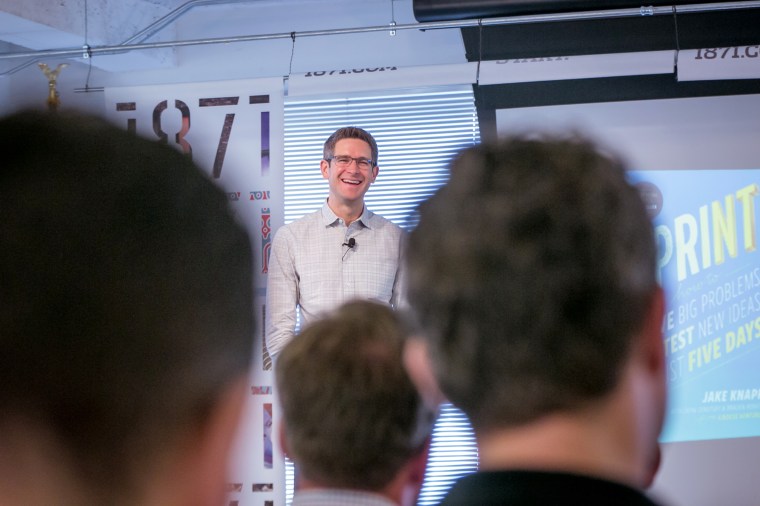Consultant John Zeratsky has crossed off to-do lists — for good. Instead, he takes a minute each night to add to his list of might-do’s.
“Lately my approach to this stuff has become more zen-like,” Zeratsky said. “I realize I’m not a machine. I’m not a robot. I’m a human and I can’t and shouldn’t optimize and cram as much as I can into every hour.”
Zeratsky, who grew up in small-town Green Lake, Wisconsin, didn’t always worry about prioritizing his time. But after college he got his big break at a busy Chicago startup, and later, at YouTube. Life got hectic, he said.
“At that stage it was really just about staying on top of things and trying to keep up,” the 33-year-old recalled. “But as my thinking evolved and my work evolved, I realized there was an opportunity to not just keep up but to actually be one step ahead.”

The young consultant learned to love to-do lists, but after several years, realized they were mostly good for conquering trivial tasks. Now a design partner at GV, the venture capital arm of Alphabet — formerly known as Google Ventures — Zeratsky focuses on the bigger picture.
“I’m not sitting there thinking…, ‘Oh, I got an hour fee, what can I cram in here?’ That’s the type of situation I think that leads to the path of least resistance — going after the quick win, getting the dopamine hit of finishing that thing,” he explained.
It's All About the One Big Thing
When Zeratsky plans his morning, he narrows down his might-do’s to what he calls his “one big thing” and organizes his calendar around it. He said it gives him “a really close finish line” for completing the projects that bring personal value and satisfaction.
“One of the reasons I think this is such a powerful way to work is that it’s much more obvious when you’re done,” he said. “I took a step toward something bigger that I was working on rather than just kind of scratching around the edges on whatever little tasks I could fit in.”
RELATED: The Busy Trap: How Keeping Busy Became a Status Symbol
At work, Zeratsky is busy helping startups improve their products, services and customer experiences. Between projects and meetings, he churns out articles for his newsletter “Time Dorks.” He even co-authored a book. And while he gets a lot done, he insists he’s not a multitasker.
"I’m not a machine. I’m not a robot. I’m a human and I can’t and shouldn’t optimize and cram as much as I can into every hour.”
“The work that you do while you’re multitasking is often not as good as the work you would do and it ends up taking longer because your attention is fragmented — it’s not focused on one single task,” Zeratsky explained.
Zeratsky lives in San Francisco, the second most hard working city in the country, but rarely works past 5 o’clock. He said the daily might-do list saves him time to do what he loves, like cooking and sailing with his wife.
“When I’ve reached that point at the end of the day where I don’t have any creative work, it’s nice to know I can sort of downshift into something that gets me off my butt,” he said.
RELATED: What Science Tells Us About How to Be Happier at Work
Zeratsky said the technique helps with projects outside the office, like reorganizing his apartment and refurbishing his sailboat on the weekends.
“There’s a certain way of thinking about productivity and time management that’s all about efficiency and really all about optimization, and I certainly reject that,” he said.
“I feel like everybody’s only got one life and so we owe it to ourselves to be thoughtful and deliberate about how we spend that time,” Zeratsky concluded.
How to Make the Might-Do List Work For You
- Continue to use your calendar to schedule to the basic things you have to do each day: meetings, appointments, e-mails, etc.
- Start a running list of bigger things you "might do" and review it each night.
- From the might-do list, select "one big thing" you'd like to accomplish each day and make that your focus.

